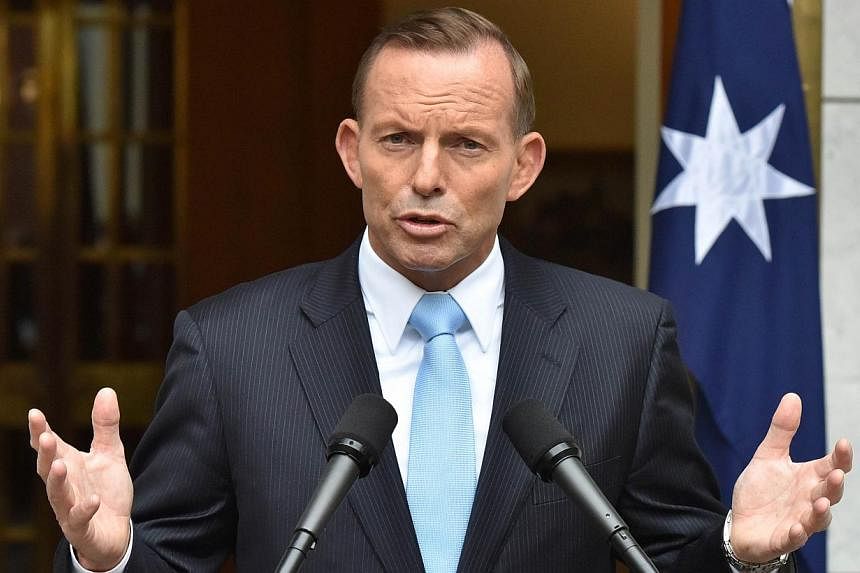SYDNEY (AFP) - Australian Prime Minister Tony Abbott ruled out an early election on Wednesday during a media blitz to sell the Budget as opponents accused the government of delaying fiscal repair to win votes.
The conservative administration's second budget on Tuesday shifted the focus away from reining in a huge deficit after harsh cuts to health and education last year triggered a backlash and a challenge to Mr Abbott's leadership.
Instead, Treasurer Joe Hockey focused on making childcare more affordable and boosting small businesses in packages totalling A$10 billion (S$13.3 billion), while largely avoiding the swingeing cuts that damaged the government's popularity in 2014.
Analysts said it was a budget to encourage spending and stimulate growth, while delaying a return to surplus until 2019-2020 - something Mr Abbott earlier pledged to achieve during his first term in office.
The Australian broadsheet ran a front-page headline that read "Leaning towards a poll", as several politicians also suggested the friendlier budget was a sign the government was preparing for an early election.
"I think the government is leaving their options open to go to an election by the end of this year," said independent senator Nick Xenophon. "This budget has enough sweeteners in it to allow them to go to the polls."
Polls must be held before January 2017 but Mr Abbott insisted the government always planned to run a full term as he did the rounds of television and radio stations to pitch his plans and defend the high spending levels.
"That is what the people of Australia elected us to do - to govern the country as best we could, to deliver on our commitments as best we could, for a full three years," he said.
"We always had to make some tough decisions," he added. "We made some very tough decisions last year and this year's budget is building on last year's budget and it is building for next year's Budget."
Labor opposition leader Bill Shorten said the budget "failed the test of the future" by not doing enough to bring down the deficit.
"What I'd say is this is a budget aimed at saving one person's job, Tony Abbott's. What I couldn't call it is a budget for the future," he said.
"Last year they were talking about debt in almost hysterical terms. This year they're now almost hysterical with the excuses why debt isn't the issue that it was last year."
The budget forecast a deficit of A$35.1 billion, or 2.1 per cent of GDP, in 2015-2016, below analysts' expectations, despite a huge hit to revenue driven by an almost 50 percent fall in the price of iron ore - Australia's biggest export.
The government said in the 2014 budget it wanted to reduce the then deficit from A$49.9 billion to A$29.8 billion this year, but some of its planned cuts are still stuck in the upper house, the Senate.
Australia has struggled to rebalance the economy away from a dependence on mining and analysts said the budget measures were "benign".
"For the economy, this budget will be fairly benign," said ANZ Bank in a research note.
"That is, we doubt that the new measures will have a big impact on the economic outlook. If the first principle of economic policy is 'do no harm', then this Budget has hit the mark."
National Australia Bank chief economist Alan Oster agreed, saying that "given the political problems of last year's budget, much focus has been placed on attempting to make this budget as politically saleable as possible".
The Budget forecast economic growth to remain below-trend at 2.75 per cent in the coming financial year before lifting to around trend growth of 3.25 per cent in 2016-2017.
To pay for its spending initiatives, which also included a boost to defence funding and more cash to fight home-grown terrorism, it announced a series of savings measures.
They included a A$980.2 million cut to the foreign aid budget and a pledge to go after large multinational firms shifting profits offshore to minimise taxes.

